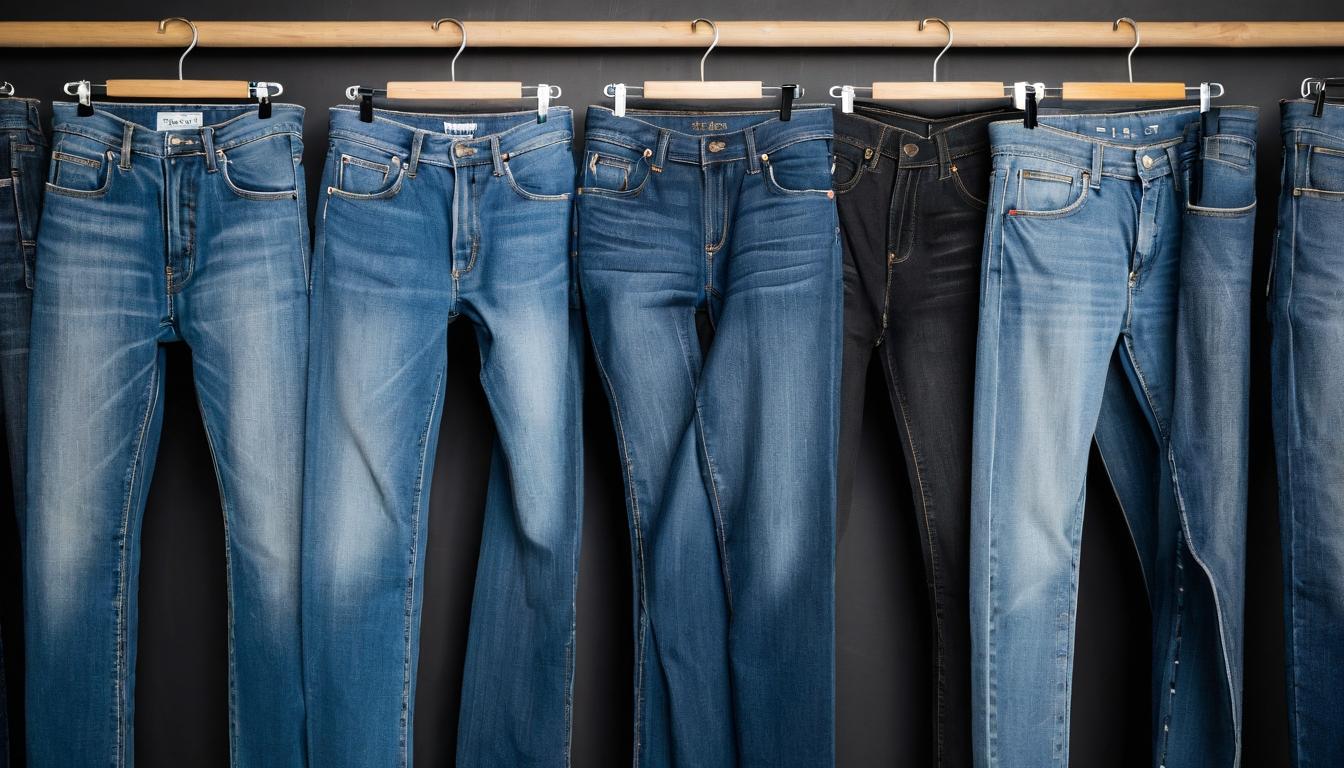In the backstreets of Milan's fashion district, where the scent of espresso mingles with the hum of sewing machines, a transformation is unfolding that would make even the most jaded fashion editor take notice. The humble jean, once synonymous with environmental destruction and questionable labor practices, is undergoing a radical reinvention that speaks volumes about where fashion is heading.
Walk into any contemporary denim atelier today and you'll find designers hunched over not just fabric swatches, but sustainability reports and water consumption charts. The conversation has shifted from mere aesthetics to something far more profound: how to create the perfect pair of jeans without leaving a trail of environmental devastation in its wake. This isn't just greenwashing—it's a fundamental reimagining of what fashion can and should be.
The numbers tell a startling story. Conventional denim production consumes approximately 1,800 gallons of water for a single pair of jeans—enough to sustain one person's drinking needs for nearly six years. But innovative brands are slashing that number by up to 96% through laser finishing techniques and ozone washing. The technology exists not in some distant future, but in factories from Los Angeles to Istanbul right now.
What makes this revolution particularly compelling is how it's being driven by consumer demand rather than regulatory pressure. Shoppers, particularly Gen Z and millennials, are voting with their wallets for transparency and responsibility. They want to know the journey of their jeans—from cotton field to closet—and brands are responding with unprecedented levels of traceability.
The materials themselves are evolving in fascinating ways. Recycled cotton blends with Tencel lyocell, made from sustainably sourced wood pulp. Hemp, once associated with hippie aesthetics, is being refined into fabrics that rival premium denim in softness and durability. Even more remarkably, companies are developing denim from agricultural waste—using everything from mushroom roots to pineapple leaves to create textiles that feel luxurious while minimizing environmental impact.
Labor practices, long the dirty secret of the denim industry, are finally coming into the light. Fair wage initiatives and worker empowerment programs are becoming selling points rather than hidden costs. The most forward-thinking brands are partnering directly with artisan communities, preserving traditional craftsmanship while ensuring living wages and safe working conditions.
The aesthetic evolution has been equally dramatic. Gone are the days when sustainable fashion meant compromising on style. Today's ethical denim comes in every conceivable cut, wash, and finish—from vintage-inspired wide legs to sleek, contemporary skinny jeans. The distinction between 'sustainable' and 'fashionable' has effectively disappeared, and that may be the most significant development of all.
This transformation extends beyond the product itself to the entire lifecycle of denim. Repair services, once the domain of tailors and grandmothers, have become premium offerings from luxury brands. Companies like E.L.V. Denim in London have built entire businesses around upcycling vintage Levi's into one-of-a-kind pieces that sell for hundreds of pounds. The message is clear: the most sustainable garment is the one already in existence.
What's particularly striking about this denim revolution is how it's happening at every price point. From high-street retailers to luxury houses, the commitment to better practices is becoming universal rather than niche. This isn't a trend—it's a fundamental shift in how the industry operates, driven by both moral imperative and commercial opportunity.
The future of denim looks increasingly circular. Brands are experimenting with rental models, take-back programs, and even biodegradable jeans that can be composted at the end of their life. The goal is no longer just to make better jeans, but to rethink our entire relationship with clothing—from how we acquire it to how we dispose of it.
This quiet revolution in denim manufacturing serves as a microcosm of fashion's broader transformation. It proves that style and sustainability aren't mutually exclusive, that ethics and aesthetics can coexist beautifully. The humble jean, once a symbol of rebellion, has become fashion's most powerful statement of change—and the revolution is just getting started.
The quiet revolution of sustainable denim: how jeans became fashion's most ethical statement

